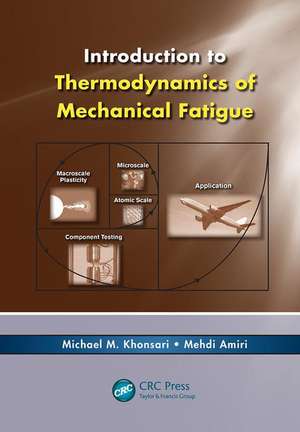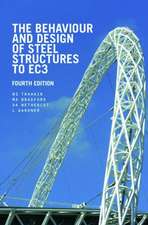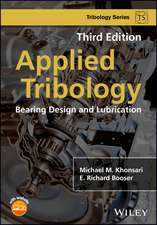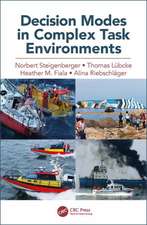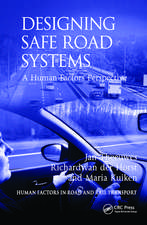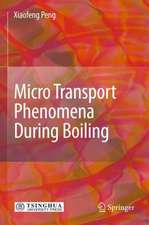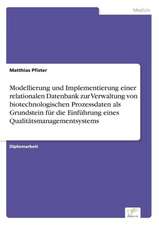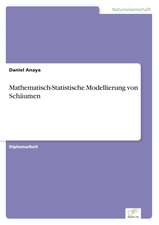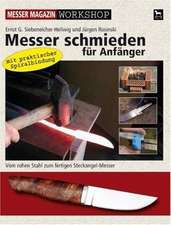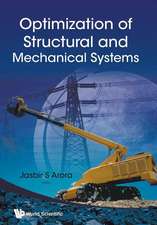Introduction to Thermodynamics of Mechanical Fatigue
Autor Michael M. Khonsari, Mehdi Amirien Limba Engleză Paperback – 29 mar 2017
An Entropic Approach to Fatigue and Degradation
Drawing on recent cutting-edge research and development, the authors present a unified entropic approach to problems involving fatigue. They introduce the fundamentals of fatigue processes and explore a wide range of practical engineering applications.
Fundamental Concepts and Methodologies
The book reviews commonly observed failure modes, discusses how to analyze fatigue problems, and examines the deformation characteristics of a solid material subjected to fatigue loading. It also looks at how to use thermodynamics to determine the onset of fatigue failure. In addition, the book presents methodologies for improving fatigue life and for accelerated fatigue testing.
Learn How to Apply the Entropic Approach to Fatigue Problems
Comprehensive and well organized, this work helps readers apply powerful thermodynamics concepts to effectively treat fatigue problems at the design stage. It offers an accessible introduction to a new and exciting area of research in the field of fatigue failure analysis.
| Toate formatele și edițiile | Preț | Express |
|---|---|---|
| Paperback (1) | 575.27 lei 6-8 săpt. | |
| CRC Press – 29 mar 2017 | 575.27 lei 6-8 săpt. | |
| Hardback (1) | 1373.61 lei 6-8 săpt. | |
| CRC Press – 17 sep 2012 | 1373.61 lei 6-8 săpt. |
Preț: 575.27 lei
Preț vechi: 676.80 lei
-15% Nou
Puncte Express: 863
Preț estimativ în valută:
110.17€ • 112.42$ • 92.69£
110.17€ • 112.42$ • 92.69£
Carte tipărită la comandă
Livrare economică 26 februarie-12 martie
Preluare comenzi: 021 569.72.76
Specificații
ISBN-13: 9781138071926
ISBN-10: 1138071927
Pagini: 166
Ilustrații: 94
Dimensiuni: 171 x 241 x 20 mm
Greutate: 0.29 kg
Ediția:1
Editura: CRC Press
Colecția CRC Press
ISBN-10: 1138071927
Pagini: 166
Ilustrații: 94
Dimensiuni: 171 x 241 x 20 mm
Greutate: 0.29 kg
Ediția:1
Editura: CRC Press
Colecția CRC Press
Public țintă
Professional Practice & DevelopmentCuprins
Introduction to Mechanical Degradation Processes. Fundamentals of Thermodynamics. Degradation-Entropy Generation (DEG) Theorem. Fatigue Mechanisms: An Overview. Basic Thermodynamic Framework for Fatigue Analysis. Thermodynamic Assessment of Fatigue Failure. Damage Mechanics: An Entropic Approach. Self-Organization in Fatigue. Entropic Fatigue: In Search for Applications. Index.
Notă biografică
Michael Khonsari is the holder of the Dow Chemical Endowed Chair and Professor of the Mechanical Engineering Department at Louisiana State University where he directs the Center for Rotating Machinery (CeRoM). Professor Khonsari is a fellow of ASME, STLE, and the American Association for the Advancement of Science (AAAS). He holds several patents and he has authored two books and over 240 archival journal articles, book chapters, and special publications. He is currently the chief editor of the ASME Journal of Tribology.
Mehdi Amiri earned his Ph.D. in mechanical engineering from Louisiana State University where he is currently a research associate in the Center for Rotating Machinery (CeRoM). His area of research is in the field of fatigue and fracture analysis. He holds one patent and has authored several journal publications. His research interests include thermal/fluid mechanics, thermodynamics, tribology, and failure analysis.
Mehdi Amiri earned his Ph.D. in mechanical engineering from Louisiana State University where he is currently a research associate in the Center for Rotating Machinery (CeRoM). His area of research is in the field of fatigue and fracture analysis. He holds one patent and has authored several journal publications. His research interests include thermal/fluid mechanics, thermodynamics, tribology, and failure analysis.
Descriere
Fatigue is probabilistic in nature and involves a complex spectrum of loading history with variable amplitudes and frequencies. Yet most available fatigue failure prediction methods are empirical and concentrate on very specific types of loading. Taking a different approach, this book provides a concise description of processes involving mechanical fatigue from the thermodynamics point of view. Drawing on recent cutting-edge research and development, the authors present an introduction to a unified entropic approach to fatigue. They introduce the fundamentals of fatigue processes and explore a wide range of practical engineering applications.
